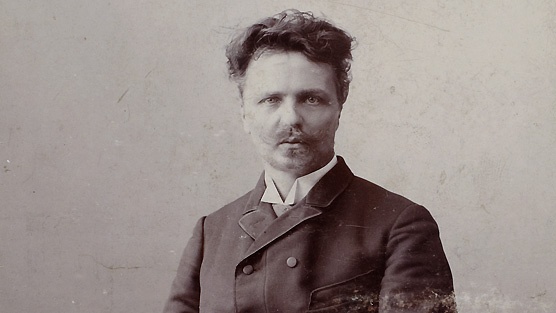Swedish News:
Strindberg on top. Timbuktu into parliament? Sweden: Higher education = worst wage outcome in OECD.
-
 Swedish author and playwright August Strindberg (1849-1912) is the most influential person on Swedish Wikipedia.
Swedish author and playwright August Strindberg (1849-1912) is the most influential person on Swedish Wikipedia. -
-
Strindberg on top
According to news published some time ago, Swedish botanist Carl von Linné came up first in a PageRank-algorithmic analysis of the most influential people on Wikipedia. But only in languages other than Swedish. That of course makes one wonder who the most influential Wikipedia person in the Swedish language is. Well, the research team led by Young-ho Eom, also covered this area and here are the ten most influential persons on Swedish-language Wikipedia, according to the 2DRank-algorithm, meaning incoming and outgoing links were both taken into consideration.
For more information: http://www.quantware.ups-tlse.fr/QWLIB/topwikipeople/
1. August Strindberg
2. Astrid Lindgren
3. King Carl XVI Gustaf of Sweden
4. Bob Dylan
5. Carl von Linné
6. Queen Elizabeth I of England
7. John Lennon
8. Michael Jackson
9. Evert Taube
10. King Henry VIII of England -
 Swedish rapper Timbuktu (Jason Diakité) wants in on Swedish politics. Last year he strongly criticized Sweden Democrat leader Jimmie Åkesson. Photo: WIkimedia Commons
Swedish rapper Timbuktu (Jason Diakité) wants in on Swedish politics. Last year he strongly criticized Sweden Democrat leader Jimmie Åkesson. Photo: WIkimedia Commons -
-
Timbuktu into parliament?
Swedish rapper Jason “Timbuktu” Diakité was criticized for rapping “Dunka Jimmie gul och blå, hissa i en flaggstång” (“Beat Jimmie black and blue, hoist up in a flag pole”) last year. Now the artist wants to get into Swedish politics. In truth, Timbuktu received both negative and positive attention when rapping about the Sweden Democrats’ party leader Jimmie Åkesson, in a pun of the phrase “gul och blå” (yellow and blue), which of course relates not only to the colors of the Swedish flag, but is also Swedish for beating a person “black and blue.” Soon, though, Timbuktu may be face to face with Jimmie, at least if he gets his way. “Politics would be a natural route for me,” he said in an interview with Dagens Nyheter. “It wouldn’t be wrong for me to become a member of Parliament.” -
Sweden: Higher education = worst wage outcome in OECD
Sweden is the OECD country in which higher education pays off the least, especially for women. The connection between career possibilities and wage distribution must be clearer, the austerity tax must be abolished and the individual wage setting must be developed, say representatives of Saco (Sveriges Akademikers Centralorganisation or the Swedish Confederation of Professional Associations). Is it reasonable, they question, that Sweden, a country that claims to be a globally competitive nation of knowledge, has the lowest return when it comes to academic education of the OECD countries? And is it reasonable that many, especially female-oriented, academic professions in Sweden are financially unviable for those with a higher education? Saco has examined the latest compilation conducted by OECD on the return on higher education in different countries. The compilation measures how high a salary is over the lifetime of a graduate with higher education in comparison to a person who starts working right after high school, that is the difference in a lifetime salary. A dark picture emerges in Sweden’s case. OECD’s study shows that Sweden is the country where it pays the least for women to educate themselves. Swedish female graduates have averaged a return of only 6.5 percent, which means that a female academic has, on average, a lifetime salary that is only 6.5 percent higher than that of a person who starts working right away upon graduating high school. This should be compared to OECD’s average of 11.5 percent. In countries like Poland, Turkey and Slovakia, the return on a higher education is all of three times higher for women. For male Swedish academics, the situation is only slightly better. Here the return on average is 7.6 percent, compared to the OECD’s 13 percent average, which is the lowest in OECD together with countries such as Greece and Norway. Sweden belongs to those countries, where the return on a higher education has decreased from the millennium, but where the level even before that was low. Swedes in also one of few countries where it is more profitable to go from primary to secondary school, than from secondary school to college or university. -
-
